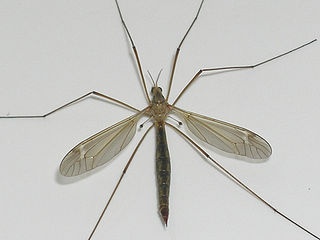You know that you have heard many, and probably believe(d) some of these myths! If you have, don’t feel alone…we hear them all the time. If you’ve heard any other ones that you know or suspect to be false and would like to know more, post them in the comments.
1. There is a special rodent poison that makes rodents go outside to find water so they won’t die inside. For starters, it is a terrible idea to use rodent poison indoors. Not only do you run the chance of a child or pet getting into it, the rodents might move it anyway. Mice are notorious for hoarding food, so where will they hoard the poison? There is no evidence that rodents go looking for water after ingesting any type of bait. They most often die in their nests or near the bait, another reason to never use poison indoors. You’ll just end up with a stinky carcass on top of an infestation. Rodenticide should ONLY be used in tamper proof containers outside.
2. Bags of water hung near doors keep flies and mosquitoes away. The theory says that they can see their reflection and get scared and thus will stay away. Some people recommend putting pennies or tin foil in the bags as well. We’ve covered this one before in an earlier post and it is absolutely not true. Actually tests have shown it could attract more flies instead of scaring them off. Snopes agrees…http://www.snopes.com/critters/wild/flies.asp
3. The average person swallows 8 spiders while sleeping during their lifetime.This is another one that Snopes has covered. It was totally made up just as a example what kinds of ridiculous things people would believe if they read it. http://www.snopes.com/science/stats/spiders.asp Have you ever read articles from the Onion? Same sort of deal here. I read one once that they found a chemical that would make male bed bugs “murder” other bed bugs by using their spiky reproductive parts. Then why do we have such a bad bed bug epidemic going around?4. Mosquito hawks eat mosquitoes.

You know the big flying insects that most folks call mosquito hawks? Well, despite their resemblance to a large mosquito, they are actually crane flies. As larvae, they are predators in damp soil so there is a slight chance they could encounter and eat mosquito larvae in a puddle if they were lucky. But really crane fly larvae would not be a significant cause of death for mosquito larvae. Adult crane flies may feed on nectar, but they generally do not feed at all. In some areas of the United States, the larvae actually cause turf damage and are considered pests, but they will certainly not help reduce the mosquito population around your home. You just need to make a quick call to Venus Pest Company for that!There are always lots of new home remedies popping up claiming to help cure diseases or rid your home of pests. Remember, everything on the internet is TRUE!!!

You know the big flying insects that most folks call mosquito hawks? Well, despite their resemblance to a large mosquito, they are actually crane flies. As larvae, they are predators in damp soil so there is a slight chance they could encounter and eat mosquito larvae in a puddle if they were lucky. But really crane fly larvae would not be a significant cause of death for mosquito larvae. Adult crane flies may feed on nectar, but they generally do not feed at all. In some areas of the United States, the larvae actually cause turf damage and are considered pests, but they will certainly not help reduce the mosquito population around your home. You just need to make a quick call to Venus Pest Company for that!There are always lots of new home remedies popping up claiming to help cure diseases or rid your home of pests. Remember, everything on the internet is TRUE!!!
